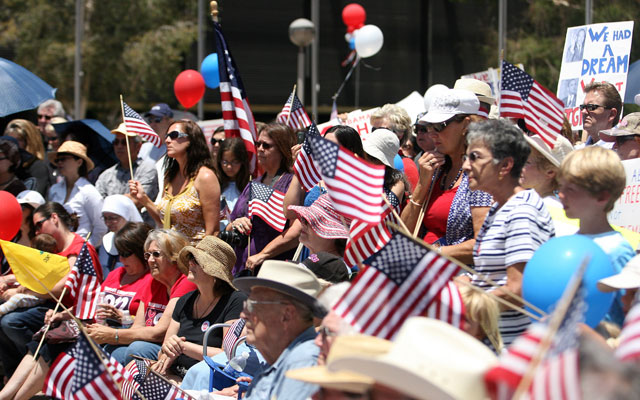Fortnight for Freedom: Religious Liberty and the Obamacare Mandate
Collette Caprara /
A coalition of religious leaders from a broad spectrum of faith backgrounds gathered in Washington this week to release a letter denouncing an Obamacare health insurance mandate threatening religious freedom.
The letter comes during the second annual Fortnight for Freedom. The two-week initiative was created to underscore current threats to religious freedom and the critical importance of safeguarding this founding principle of our nation.
“[W]e recognize the United States, at its best, is unique among the nations of the world when it defends the self-evident freedom of all people to exercise their faith according to the dictates of their consciences,” the coalition letter states. “This freedom contributes to the vibrancy of our nation.”
Yet that religious freedom is threatened by the Obamacare anti-conscience mandate, which requires employers to facilitate and provide for coverage of abortion-inducing drugs, contraception, and sterilization—even if doing so is in conflict with their religious beliefs. Family businesses, religious charities, schools, and hospitals that do not comply with the mandate face stiff and continued fines. For some family businesses—such as the arts-and-crafts store Hobby Lobby, which employs more than 13,000 individuals across the country—fines could be as high as $1.3 million per day.
Only formal houses of worship are truly exempt from the mandate. Countless other employers—such as faith-based schools, hospitals, and charities—are still required to facilitate coverage of the mandated drugs and services regardless of religious or moral objection.
The mandate has elicited a flurry of more than 60 lawsuits. Archbishop William Lori, chair of the U.S. Conference of Catholic Bishops’ Ad Hoc Committee for Religious Liberty, declared that when the mandate is implemented, “the poor and those who serve them will be hurt the most,” referring to the millions of low-income families and children who are served by Catholic hospitals, schools, and service institutions that are not exempt from the mandate.
Even regarding informal acts of compassion—such as donating blood and giving food or money directly to a homeless person—regular churchgoers are more likely to exhibit charity. In addition, church attendance is linked to civic participation, ranging from helping in schools to engaging in service projects.
Given the vital role of religion to civic order and societal well-being, it is critically important to be vigilant against all efforts to suppress those who strive to live in accord with their beliefs and to work to protect the freedom of religious individuals and institutions to continue their unique contributions to civil society.

